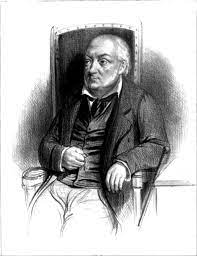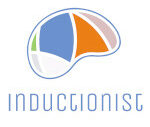The Ignorant Schoolmaster Book Review – by Jacques Rancière
The book explains itself as “Five Lessons in Intellectual Emancipation.” The ignorant schoolmaster is a masterpiece written in 1987. I don’t know how many books I have read in my life. I know that I read a lot… But among them, this one is extraordinary. I gave this book to many people as a gift, have read it five times, and presented it in a seminar. In fact, I’m writing to this blog, mainly because of The Ignorant Schoolmaster. It has a strong influence on my posts here.
Anyway… Let’s stop marketing this book and discuss what it says. Do not worry about the spoiler because the book’s content is heavy. If you would like to read, you need to spare a substantial amount of time. This article could be a good start for you.
The Ignorant Schoolmaster – Joseph Jacatot

The book starts with a story of a French Educator, Joseph Jacotot. He goes to (exiled) Belgium. He does not know the main language in Belgium (Flemish). Some students want him to teach, but they do not know French. There is a language barrier. Jacotot initiates an interesting experiment. He gives students a bi-lingual book named “Télémaque.” The bi-lingual book has double pages, one written in French and the other in Flemish. Students have only one task. They must be able to understand all French sentences in the book. They do not use any other materials and do not receive any prior lectures. 6 months later, they all were able to read French from the book. Moreover, they learn French very well. In terms of writing and reading…
This short story is fascinating because it raises some questions. How did students learn French? Is Jacotot their teacher? But he does not transfer any information to students. He is an ignorant schoolmaster!!! What is his role as a teacher? Is his method better or worse? Questions go deep and bring more. The book discusses all and comes to interesting conclusions. I cannot discuss all of it. I will bring some interesting ones which most people flout or disagree with.
Everything is in Everything

Even though Télémaque aimed to tell a story, the story contains implicit information such as French grammar. In addition to the story, students were able to learn French words and grammar. It is possible to learn about psychology or the author of the book. The book does not explicitly “explain” them, but it is possible to infer. Remember, grammar rules were not written. Students first made inferences, then memorized them just like we all did when we were babies.
You can see such a pattern in every aspect of life. We can learn leadership from a gang leader or a child playing with others. We can make wiser decisions in your career by carefully observing your friends. Most of us learn a lot about psychology via ourselves and friends. While listening to a terrible math teacher, you also learn “how to not teach lecture.” In summary, everything is in everything. Well, that is an exaggeration, but you get the point. Everything we observe is informative on various things.
Reason Between Equals – Inequality’s Passion

Most people would disagree with this idea in some ways – including myself. I think that it is not realistic to think this as the author describes. He strongly argues that people are equal in terms of intelligence. Society has a hierarchy defining superiors and inferiours. Superiors teach, and inferiors learn from superiors. Learning activity is also subject to this hierarchy. Such hierarchy can be preserved because both superiors and inferiors desire it: Inequality’s Passion. It is easy to understand why superiors desire this as they enjoy their status in many ways. On the other hand, the inferiors desire this because it is an excuse to “not to do.” They can say that “I can’t” if they accept the hierarchy.
The author argues that “anyone can learn anything.” after discussing the ways of learning, “everything is in everything,” and “equality of intelligence.” The big sin is laziness. Now, I will show you why “reason between equals” is a strong principle.
Imagine a university lecturer and a student. Because our society embraces “inequality.” It is easy to imagine the student being willing to learn from the lecturer while the lecturers think that they have nothing to learn from the student. The lecturer may not say it in principle, but most would unconsciously behave in this way. It is not difficult to imagine this is our world. Now, imagine the opposite. The student and lecturer consider each other as equal in terms of their intellectual capacity. Meanwhile, the student can appreciate and respect the lecturer’s knowledge. Think about the quality of communication in both scenarios. If both sides respect each other’s intelligence, it will improve students learning quality and forces lecturer to be more innovative. Rancière makes a solid point. The assumption of “equality” would increase the quality of learning. It is being open to the possibility of learning from anyone about anything.
True role of a Teacher: Emancipator
All being said, let’s go back to our ignorant schoolmaster. What is the true role of a teacher? The author says the best teachers make their students realize that they are free. Their true role is being intellectual emancipators. The best way to achieve this is to be ignorant of the subject that they are teaching. Again, I think it is an exaggeration not true in some cases. But my experiences show that learning is often an individual activity. Including myself, most students do not learn in the classroom. They learn most when they are working alone. Yet most students think the opposite, and they are not aware of their freedom. A teacher must help them by not explaining.
All things I said are controversial, right? I hope they are.



